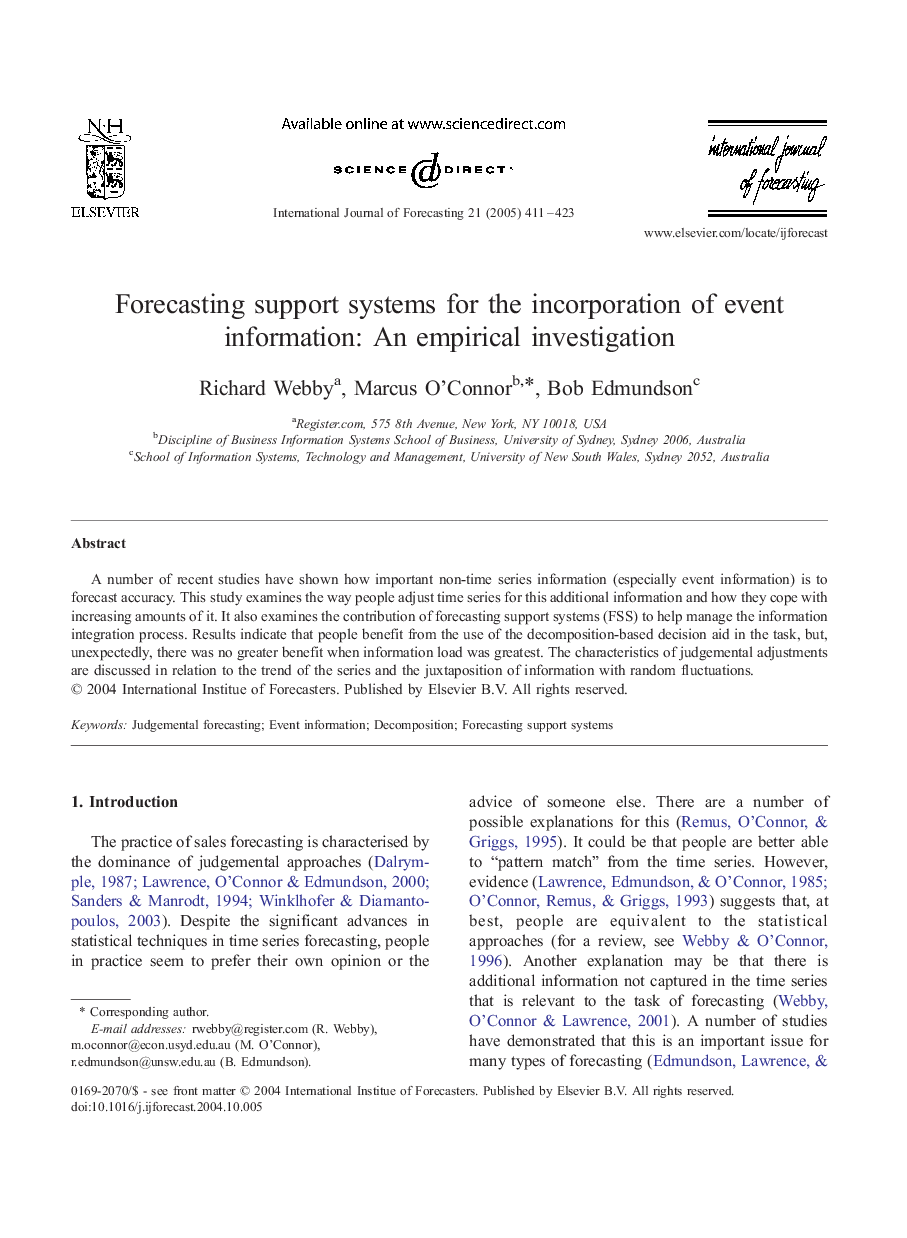| Article ID | Journal | Published Year | Pages | File Type |
|---|---|---|---|---|
| 9732529 | International Journal of Forecasting | 2005 | 13 Pages |
Abstract
A number of recent studies have shown how important non-time series information (especially event information) is to forecast accuracy. This study examines the way people adjust time series for this additional information and how they cope with increasing amounts of it. It also examines the contribution of forecasting support systems (FSS) to help manage the information integration process. Results indicate that people benefit from the use of the decomposition-based decision aid in the task, but, unexpectedly, there was no greater benefit when information load was greatest. The characteristics of judgemental adjustments are discussed in relation to the trend of the series and the juxtaposition of information with random fluctuations.
Related Topics
Social Sciences and Humanities
Business, Management and Accounting
Business and International Management
Authors
Richard Webby, Marcus O'Connor, Bob Edmundson,
